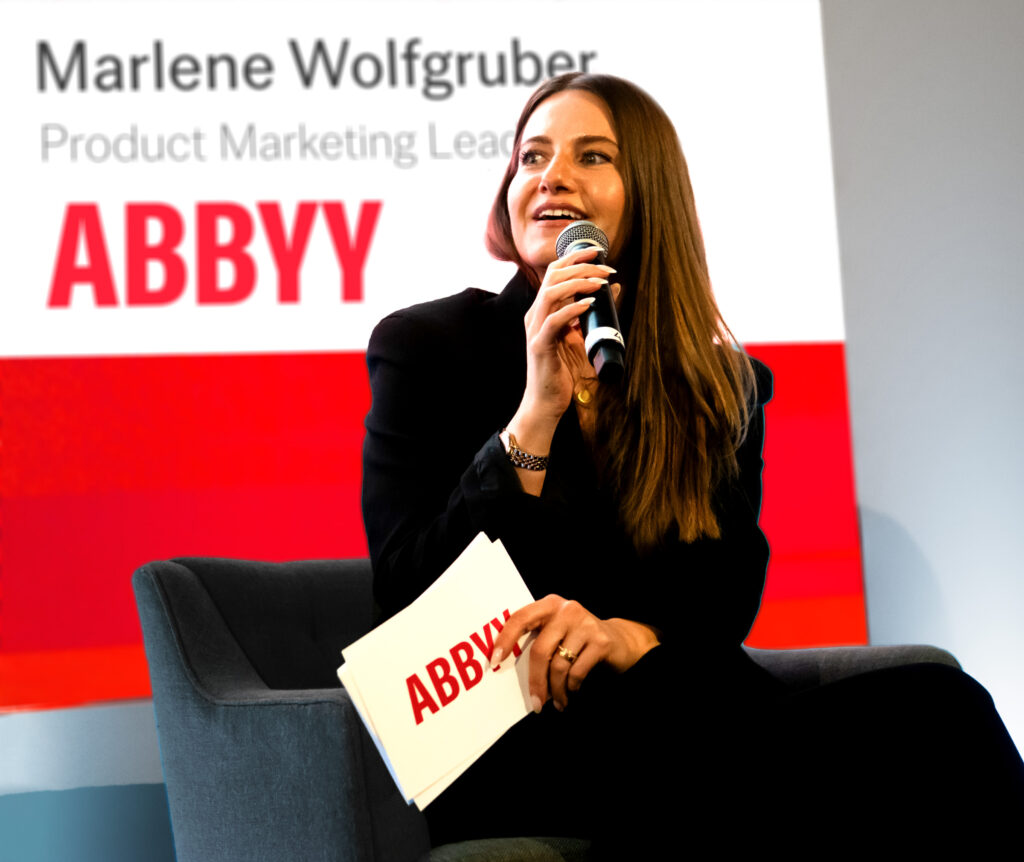Curious about what keeps experts, CEOs and other decision-makers in the Intelligent Document Processing (IDP) space on their toes? Get food for thought on IDP-related topics from the industry’s leading minds.
In this opinion piece, Dr. Marlene Wolfgruber, Product Marketing Lead for AI at Intelligent Document Processing (IDP) vendor ABBYY, explains the key characteristics of purpose-built AI, the main differences between it and general-purpose AI, and why this matters to enterprises.
In the dynamic environment of digital enterprise, the pace of generative AI (GenAI) innovation is undeniable. As organizations integrate these tools into their operations, “knowledge as a service” is becoming the new standard. Yet, beneath the promise of GenAI lies a challenge that enterprises cannot overlook: the risk of AI hallucinations. Inconsistent or fabricated outputs present substantial concerns for business-critical workflows, where precision and trust underpin success. A recent survey commissioned by ABBYY showed that one in five (20%) of US companies cited hallucinations as a major challenge when implementing GenAI tools.
Instances of AI-generated inaccuracies illustrate the problem clearly. For example, users have seen tools like ChatGPT or Copilot confidently describe nonexistent movies—complete with creative storylines and cast lists. These errors may seem trivial on the surface, but, within a business context, the consequences are significant. It is increasingly complex to separate fact from fiction across AI-generated content. This challenge becomes acute in high-stakes scenarios—such as invoice processing—where any deviation from accurate data can introduce operational risk. If an AI model fails to retrieve a critical detail, such as a total invoice amount, and generates a false value, the impact on business processes is immediate and far-reaching. Robust oversight is required to safeguard accuracy where it matters most.
General-Purpose LLMs Have Value—When Used Strategically
ABBYY recognizes the transformative potential of general-purpose LLMs. These models offer advanced capabilities like summarization, contextual reasoning, and natural language understanding. They are particularly effective in creative and conversational domains. However, when applied to enterprise-grade document processing, they must be used strategically—within a robust infrastructure that ensures accuracy, compliance, and scalability.
Rather than viewing general-purpose LLMs as competitors to purpose-built AI, ABBYY advocates for a hybrid approach. LLMs can be integrated into document workflows where they add value—such as summarizing extracted data or enhancing user interaction—while purpose-built AI ensures the precision and reliability required for core automation tasks.
What is Purpose-Built AI?
Purpose-Built AI is engineered for specific business challenges. Unlike general-purpose AI models—including large language models (LLMs) or broader generative systems—purpose-built AI solutions concentrate on specialized use cases: document processing, fraud detection, or supply chain optimization, for example.
Rather than attempting to cover every possible function, purpose-built AI is designed to deliver reliable outcomes for clearly defined objectives. Its value lies in expertly supporting operational priorities where reliability cannot be compromised.
Key Characteristics of Purpose-Built AI
A close examination of purpose-built AI highlights several essential characteristics that make it an ideal solution for specialized business requirements.
- Targeted Problem Solving: Purpose-built AI is developed to address a single, well-defined problem or task, delivering a precision-focused solution rather than serving a broad range of applications.
- Higher Accuracy: By specializing in a single domain, purpose-built AI achieves superior accuracy and efficiency for the designated task. General-purpose models generally require thorough adaptation and fine-tuning to perform comparably.
- Data Efficiency: Relying on domain-specific datasets during training, purpose-built AI ensures output relevancy without the need for massive, generic data sources.
- Easy Integration: Pre-configured purpose-built AI systems support seamless integration into established workflows, minimizing the requirement for extensive customization or tuning.
Key Differences: Purpose-Built vs. General-Purpose AI
The advantages of purpose-built AI become clear in a direct comparison with its general-purpose counterpart. The core distinctions lie in their scope, training data, flexibility, accuracy, and application. Purpose-built AI addresses narrow, well-defined tasks like invoice data extraction, whereas general-purpose AI handles a broad spectrum of open-ended requests. This focus allows purpose-built AI to thrive on curated, domain-specific datasets, while general models require vast and diverse data. Consequently, purpose-built AI offers limited flexibility but expert performance in its designated area, maintaining high accuracy and reliability. In contrast, general-purpose AI is highly adaptable for creative tasks but often needs significant fine-tuning to achieve comparable precision in specific business uses. This makes purpose-built AI ideal for applications like optical character recognition (OCR) and fraud detection, while general-purpose AI excels at tasks like story creation and interactive bot development.
Why Enterprises Need a Hybrid Approach
The real power of AI in enterprise settings emerges when general-purpose LLMs and purpose-built AI work together. This hybrid model amplifies results by combining the flexibility and intelligence of LLMs with the precision, structure, and reliability of domain-optimized systems.
- LLMs bring contextual understanding to document workflows—enabling summarization, semantic enrichment, and conversational interfaces.
- Purpose-built AI ensures accuracy and compliance, extracting structured data from complex layouts with high fidelity.
- Together, they enable automation that is both intelligent and trustworthy—reducing manual effort while maintaining control over critical business processes.
- Enterprises benefit from faster time-to-value, lower operational risk, and greater scalability, without compromising on governance or explainability.
ABBYY’s open architecture supports this synergy, allowing organizations to integrate any LLM of choice into its Intelligent Document Processing (IDP) platform. This means enterprises don’t have to choose between innovation and reliability—they can have both.

About the Author
Dr. Marlene Wolfgruber is the Product Marketing Lead for AI at ABBYY, bringing over 10 years of leadership experience in product management and marketing. She has deep knowledge in a wide range of topics within the intelligent automation industry, and regularly shares her expertise as an expert in AI and language technologies. In her previous roles, Wolfgruber led efforts to revolutionize AI-powered spend management and empowered businesses to build autonomous assistants with generative AI. Wolfgruber holds a Ph.D. in computational linguistics from Ludwig Maximilian University of Munich, and enjoys reading, exercising, cooking, and spending time with her two children.
To find more news from ABBYY, click here.
You may also like:
Beyond Retrieval: How Intelligent Document Processing Elevates RAG Systems

📨Get IDP industry news, distilled into 5 minutes or less, once a week. Delivered straight to your inbox ↓







